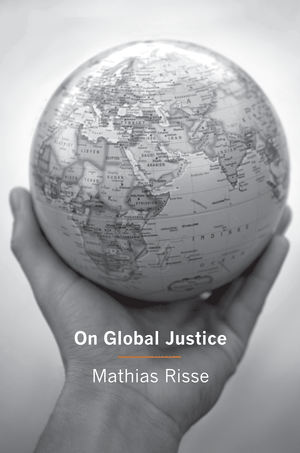- Berthold Beitz Professor in Human Rights, Global Affairs and Philosophy-
- Director of the Carr Center for Human Rights Policy-
John F. Kennedy School of Government, Harvard University
Mathias Risse
Books! Books! Books!

With the rise of far-reaching technological innovation, from artificial intelligence to Big Data, human life is increasingly unfolding in digital lifeworlds. While such developments have made unprecedented changes to the ways we live, our political practices have failed to evolve at pace with these profound changes. In this path-breaking work, Mathias Risse establishes a foundation for the philosophy of technology, allowing us to investigate how the digital century might alter our most basic political practices and ideas. Risse engages major concepts in political philosophy and extends them to account for problems that arise in digital lifeworlds including AI and democracy, synthetic media and surveillance capitalism and how AI might alter our thinking about the meaning of life. Proactive and profound, Political Theory of the Digital Age offers a systemic way of evaluating the effect of AI, allowing us to anticipate and understand how technological developments impact our political lives – before it's too late.

Trade has made the world. Still, trade remains an elusive and profoundly difficult area for philosophical thought. This novel account of trade justice makes ideas about exploitation central, giving pride of place to philosophical ideas about global justice but also contributing to moral disputes about practical questions. On Trade Justice is a philosophical plea for a new global deal, in continuation of, but also at appropriate distance to, postwar efforts to design a fair global-governance system in the spirit of the American New Deal of the 1930s. This book is written in the tradition of contemporary analytical philosophy but also puts its subject into a historical perspective to motivate its relevance. It covers the subject of trade justice from its theoretical foundations to a number of specific issues on which the authors throw light. The state as an actor in the domain of global justice is central to the discussion in this book but the authors also extensively explore the obligations of business, recognizing the importance of the modern corporation for trade. So topics such as wage injustice, collusion with authoritarian regimes, relocation decisions, and obligations arising from interaction with suppliers and subcontractors all enter prominently. Another central actor in the domain of trade is the World Trade Organization. The WTO needs to see itself as an agent of justice. The authors explore how this organization should be reformed in light of the proposals they make. In particular, the WTO needs to endorse a human-rights and development-oriented mandate. Overall, this book hopes to make a theoretical contribution to the creation of an exploitation-free world.
( Joint work with Gabriel Wollner, University of Bareuth)

Though in recent decades much attention has been paid to different principles of justice, little work has been done reflecting on what the larger concern behind the notion is. The perennial quest for justice, I propose, is about making sure each individual has an appropriate place in what our uniquely human capacities permit us to build, produce and maintain and is respected appropriately for her capacities to hold such a place to begin with. I first investigate the role of political philosophers and explore how to think about the global context where philosophical inquiry occurs. Secondly, I offer a quasi-historical narrative about how the notion of distributive justice identifies a genuinely human concern that arises independently of cultural context and has developed into the one we should take ourselves as having now. Thirdly, I offer an analytical investigation of the core terms of this view, such as stringency, moral value, ground and duties of justice.

Debates about global justice have traditionally fallen into two camps. Statists believe that principles of justice can only be held among those who share a state. Those who fall outside this realm are merely owed charity. Cosmopolitans, on the other hand, believe that justice applies equally among all human beings. On Global Justice offers a new theory of global distributive justice—pluralist internationalism--where in different contexts, different principles of justice apply. Arguing that statists and cosmopolitans seek overarching answers to problems that vary too widely for one single justice relationship, the book explores who should have how much of what we all need and care about, ranging from income and rights to spaces and resources of the earth. Especially demanding redistributive principles apply among those who share a country, but those who share a country also have obligations of justice to those who do not because of a universal humanity, common political and economic orders, humanity’s common ownership of the earth, and a linked global trading system. Inquiries about humanity’s common ownership of the earth give insights into immigration, obligations to future generations, and obligations arising from climate change. The book considers issues such as fairness in trade, responsibilities of the WTO, intellectual property rights, labor rights, whether there ought to be states at all, and global inequality. It also develop a new foundational theory of human rights.

Global Political Philosophy is an introductory text to political philosophy. The typical introduction to political philosophy makes the state central, and normally only devotes a couple of chapters to international or global issues. This introduction starts at the global level, with human rights and universalism vs. relativism, and then also discusses other topics from a global perspective (including immigration, fairness in trade, and obligations from climate change). The state does play a role (the book discusses whether there ought to be states), but the overall perspective is that occasionally the global level is left to discuss states rather than the more typical approach just sketched.
Preview of each chapter is available through the Palgrave Mcmillian's website.